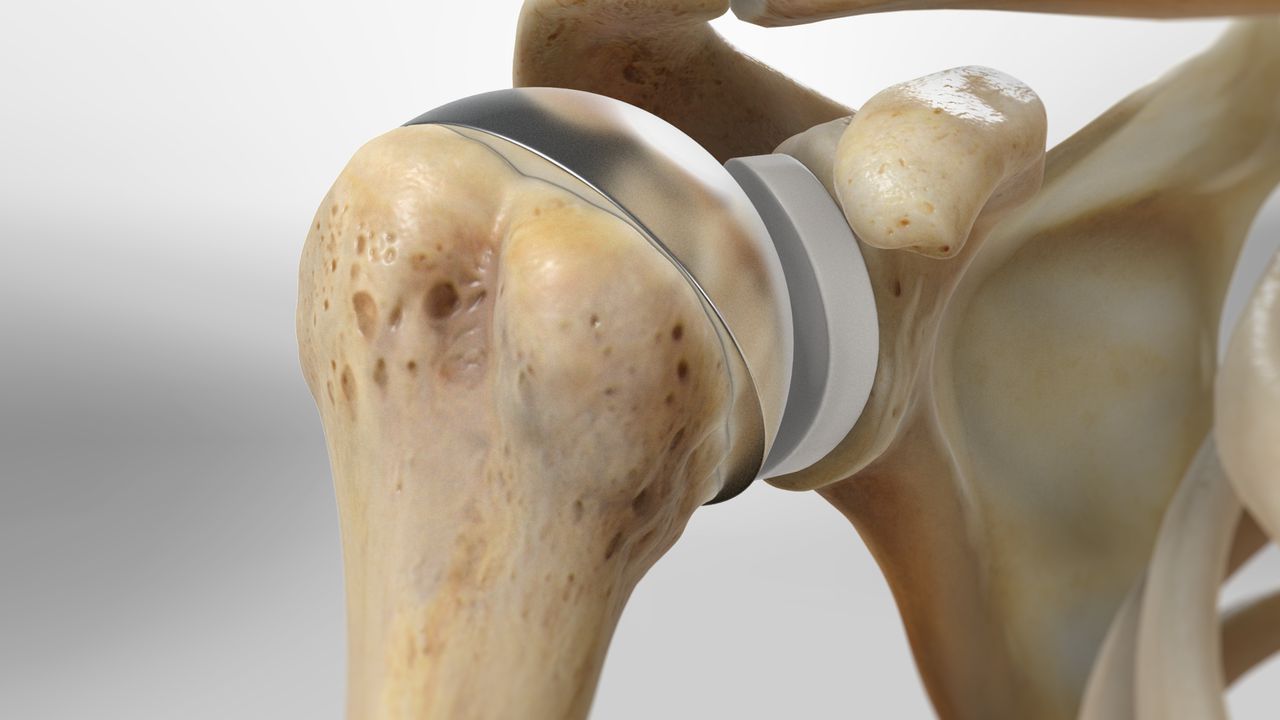Shoulder Replacement
Home / Shoulder Replacement

Shoulder replacement surgery is a highly effective treatment for patients suffering from chronic shoulder pain, limited mobility, and a reduced quality of life due to various shoulder conditions. This procedure has helped numerous individuals regain their ability to perform daily activities and improve overall functionality. Dr. Shekhar Srivastav, a leading orthopedic surgeon based in Delhi, provides expert care in shoulder replacement surgery, helping patients find relief and improve their shoulder health.
What is Shoulder Replacement?
Shoulder replacement, also known as shoulder arthroplasty, involves the removal of the damaged parts of the shoulder joint and replacing them with artificial components. The goal of this procedure is to alleviate pain, restore movement, and enhance the quality of life for individuals suffering from debilitating shoulder conditions. Dr. Shekhar Srivastav uses advanced techniques and state-of-the-art technology to ensure the best outcomes for his patients.
Conditions Treated by Shoulder Replacement
Shoulder replacement surgery is typically recommended for individuals experiencing severe shoulder pain or limited function due to:
- Osteoarthritis: Degeneration of the cartilage in the shoulder joint, leading to pain and stiffness.
- Rheumatoid Arthritis: An autoimmune disease that causes joint inflammation and damage.
- Rotator Cuff Tears: In some cases where the rotator cuff is severely damaged and cannot be repaired, shoulder replacement may be necessary.
- Fractures: Complex fractures that involve the shoulder joint and cannot be repaired with other methods.
- Shoulder Instability: Chronic dislocations or instability that leads to pain and loss of function.
Types of Shoulder Replacement
Dr. Shekhar Srivastav offers various types of shoulder replacement surgeries, depending on the patient's condition and needs:
- Total Shoulder Replacement (TSA): This is the most common type, in which both the ball (humeral head) and socket (glenoid) are replaced with prosthetic components.
- Reverse Shoulder Replacement (RSA): This procedure is typically recommended for patients with massive rotator cuff tears and arthritis. The ball and socket are reversed to allow the deltoid muscle to compensate for the lost rotator cuff function.
- Partial Shoulder Replacement: In this procedure, only the damaged part of the shoulder joint is replaced, while the remaining healthy portions are preserved.
The Procedure: What to Expect
houlder replacement surgery is typically performed under general anesthesia or regional anesthesia, depending on the patient's health and preferences. The surgery involves making small incisions, through which the damaged parts of the joint are removed, and prosthetic components are inserted.
The procedure usually takes around 1-2 hours, depending on the complexity. Post-surgery, patients are typically monitored in a recovery room for a few hours before being discharged. Most patients can go home the same day or the following day.
Recovery After Shoulder Replacement
Recovery from shoulder replacement surgery varies from patient to patient, but most individuals can expect the following:
- Initial Recovery: After surgery, patients may experience pain and swelling, which can be managed with prescribed medications. A sling is often worn to support the shoulder during the initial healing phase.
- Physical Therapy: Rehabilitation is crucial for optimal recovery. Dr. Shekhar Srivastav recommends a personalized physical therapy program to help patients regain strength, flexibility, and range of motion.
- Timeline: Patients can usually return to light activities within 6-8 weeks, but it may take 3-6 months to fully recover. The timeline varies based on the individual’s health and adherence to the rehabilitation program.
Benefits of Shoulder Replacement
Shoulder replacement surgery offers several benefits, including:
- Pain Relief: The primary benefit of shoulder replacement is the reduction or elimination of chronic pain that was previously unmanageable.
- Improved Function: Patients typically regain a significant amount of mobility, allowing them to perform daily activities with ease.
- Improved Function: Patients typically regain a significant amount of mobility, allowing them to perform daily activities with ease.
- Enhanced Quality of Life: With improved function and reduced pain, patients can return to their favorite activities, such as exercise, hobbies, and work.
Why Choose Dr. Shekhar Srivastav?
Dr. Shekhar Srivastav is a renowned orthopedic surgeon based in Delhi, specializing in shoulder replacement surgery. With years of experience and a patient-centered approach, he is committed to providing the highest standard of care. He utilizes the latest techniques and technologies to ensure the best possible outcomes for his patients.
His compassionate approach and dedication to personalized treatment plans make him a trusted choice for individuals seeking relief from shoulder pain and dysfunction.
Conclusion
Shoulder replacement surgery is a life-changing procedure for individuals struggling with shoulder pain and mobility issues. Dr. Shekhar Srivastav, with his expertise and state-of-the-art techniques, offers the best possible care for patients in Delhi. Whether you are dealing with arthritis, rotator cuff issues, or other shoulder conditions, shoulder replacement may be the solution to help you regain function and live pain-free.
If you're considering shoulder replacement surgery, consult Dr. Shekhar Srivastav to discuss your options and start your journey to recovery.
FAQ On Shoulder Replacement
- Total Shoulder Replacement (TSA): Replaces both the ball (humeral head) and socket (glenoid) with prosthetic components.
- Reverse Shoulder Replacement (RSA): Recommended for patients with massive rotator cuff tears, reversing the ball-and-socket structure to rely on the deltoid muscle for movement.
- Partial Shoulder Replacement: Only the damaged portion of the joint is replaced, preserving healthy tissue.
- First few weeks: Sling support and pain management.
- 6-8 weeks: Gradual return to light activities.
- 3-6 months: Significant improvement in mobility and strength.
- Significant pain relief from arthritis or injury.
- Improved shoulder function and mobility for daily activities.
- Enhanced quality of life, allowing patients to resume work, exercise, and hobbies with minimal discomfort.


